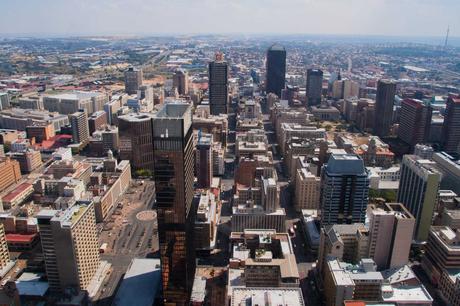USD/ZAR slides from 15.40 levels to 14.99 levels, as it faces four consecutive days of contraction and slips just below the psychological 15.00 level.

USD/ZAR Slides for Four-Consecutive Days
The South African Rand shows four consecutive days of weakness. The psychological level at 15.00, which was a strong support, was broken on Tuesday, 2 February.
The USD/ZAR currency pair moved below the 50 DMA at 15.00, showing weakness for four days. On the upside, the 15.35 is a stiff resistance that the USD/ZAR currency pair is unable to cross.
Emerging market currencies (EM) are currently performing better, with weakness showing in the greenback. The South African Rand is one of the top-performing currencies in the emerging market against the dollar.
Reserve Banks (SARB) Keeps Rates Unchanged
The Reserve Bank Governor of South Africa Lesetja Kganyago said that income disruptions caused by the pandemic have affected the economy, but there is still room for expansion.
The Reserve Bank (Sarb) has reported that low-interest rates are not attracting customers to take credit and consumer spending has come down. 'Black Friday' sale from Africa was below normal, which indicates the unwillingness of consumers to spend.
The South African Reserve Bank (SARB) has kept the repurchase rate unchanged at 3.50%. The Monetary Policy Committee (MPC) convened its first meeting on 21 January 2021. The economic growth in the third quarter of 2020 saw a swift rebound but was toned down in the last quarter. Not much is expected in the first quarter of 2021 too, as coronavirus infections are increasing and restrictions are re-imposed.
Low Consumer Confidence Affects Business Sector
The Manufacturing PMI fell to a 5-month low to touch 50.3 in December 2020, from 52.6 in November. The continuous decline in manufacturing activity shows that recovery momentum is slower.
Low business confidence is mounting, as the coronavirus pandemic is affecting businesses, which in turn weighs heavily on the Rand. Hopes for more vaccines are keeping the South African Rand positive.
South Africa's trade surplus has come down in December to ZAR 32 billion from ZAR 35 billion in November. Exports have reduced 8.2% to ZAR 125.9 billion. The sectors showing the largest decline are precious metals and stones, vehicles and transport equipment, and prepared foodstuffs.
Imports fell 7.8% to ZAR 93.9 billion. Sectors that show lower imports are machinery and electronics, base metals, original equipment components, and textiles.
Political disturbances and economic uncertainty are weighing down the Rand. Consumer inflation is at a 16-year low, at levels reached in 2004. The average annual inflation rate is 3.3%. Annual inflation for the year ended 2020 was at 3.1% in December, lower than November's reading at 3.2%. Inflation increase is seen in non-alcoholic beverages and food. Meat prices increased 7.3% from the previous year. In the oil and fats category, prices have gone up 10.2% from the previous year. Inflation in sweets, sugar, and dessert products has increased 8.4% this year.
Petrol is expected to rise steeply in February, has brought in higher transport costs, which in turn may impact food and grocer prices. With global economic recovery, the oil demand is expected to increase, which may push up crude prices, predict by the Automobile Association (AA). Experts predict an increase in international oil prices.
The overall trade surplus in 2020 has widened from ZAR 23.7 billion to ZAR 270.6 billion, year-on-year. Imports have dropped 11.8%, while exports have gone up 7.5%.
ANC NEC Lekgotla and Structural Reforms
In the two-day ANC NEC Lekgotla, strategies to be taken to uplift the economy were discussed. Focus on covid-19, inequality between men and women in the country, and global climate change was given special attention.
President Cyril Ramaphosa paid special tribute to health workers and frontline workers. Intensive prevention measures and vaccination programs are required to strengthen the health system, says Ramaphosa. Special efforts are taken to rebuild the economy and overcome the Covid-19, said the president, though elaborate details were not mentioned. The second round of Covid infections and lockdown has affected the country and needs focus in policy decision-making.
South Africa had a high level of unemployment during the pre-pandemic times, and with stringent lockdown measures, several industries have come under immense financial pressure. The labor market has not fared well, due to frequent restrictions in various parts of South Africa. Policies to improve employment creation are to be created to improve conditions.
GBP/ZAR
The coronavirus vaccine from Novavax is supporting the Pound with hopes of curbing the pandemic infection. However, infection rates remain high in the UK, though vaccine rollout continues. A lockdown reversal is expected from March in various parts of the UK. The Rand has been resilient against the Pound, with exports improving in South Africa.
US Dollar
The US President Joe Biden has announced a travel ban to South Africa to contain the new virus strain. Experts say that tourism is already at a low ebb and this new announcement from the US may not have much of an impact on the South African currency.
The US stimulus package is yet to materialize as the enormous amount allotted is opposed by other parties. The stimulus amount is expected to keep the Rand stronger. The win by President Joe Biden has strengthened the Rand.
USD/ZAR slides from 15.40 levels to 14.99 levels as it faces four consecutive days of contraction and slips just below the psychological 15.00 level.
USD/ZAR Slides for Four-Consecutive Days
The South African Rand shows four consecutive days of weakness. The psychological level at 15.00, which was strong support, was broken on Tuesday, 2 February.
The USD/ZAR currency pair moved below the 50 DMA at 15.00, showing weakness for four days. On the upside, the 15.35 is a stiff resistance that the USD/ZAR currency pair is unable to cross.
Emerging market currencies (EM) are currently performing better, with weakness showing in the greenback. The South African Rand is one of the top-performing currencies in the emerging market against the dollar.
Reserve Banks (SARB) Keeps Rates Unchanged
The Reserve Bank Governor of South Africa Lesetja Kganyago said that income disruptions caused by the pandemic have affected the economy, but there is still room for expansion.
The Reserve Bank (Sarb) has reported that low-interest rates are not attracting customers to take credit. Consumer spending has come down. 'Black Friday' sale from Africa was below normal, which indicates the unwillingness of consumers to spend.
The South African Reserve Bank (SARB) has kept the repurchase rate unchanged at 3.50%. The Monetary Policy Committee (MPC) convened its first meeting on 21 January 2021. The economic growth in the third quarter of 2020 saw a swift rebound but was toned down in the last quarter. Not much is expected in the first quarter of 2021 too, as coronavirus infections are increasing and restrictions are re-imposed.
Low Consumer Confidence Affects Business Sector
The Manufacturing PMI fell to a 5-month low to touch 50.3 in December 2020, from 52.6 in November. The continuous decline in manufacturing activity shows that recovery momentum is slower.
Low business confidence is mounting, as the coronavirus pandemic is affecting businesses, which in turn weighs heavily on the Rand. Hopes for more vaccines are keeping the South African Rand positive.
South Africa's trade surplus has come down in December to ZAR 32 billion from ZAR 35 billion in November. Exports have reduced 8.2% to ZAR 125.9 billion. The sectors showing the largest decline are precious metals and stones, vehicles and transport equipment, and prepared foodstuffs.
Imports fell 7.8% to ZAR 93.9 billion. Sectors that show lower imports are machinery and electronics, base metals, original equipment components, and textiles.
Political disturbances and economic uncertainty are weighing down the Rand. Consumer inflation is at a 16-year low, at levels reached in 2004. The average annual inflation rate is 3.3%. Annual inflation for the year ended 2020 was at 3.1% in December, lower than November's reading at 3.2%. Inflation increase is seen in non-alcoholic beverages and food. Meat prices increased 7.3% from the previous year. In the oil and fats category, prices have gone up 10.2% from the previous year. Inflation in sweets, sugar, and dessert products has increased 8.4% this year.
Petrol is expected to rise steeply in February, has brought in higher transport costs, which in turn may impact food and grocer prices. With global economic recovery, the oil demand is expected to increase, which may push up crude prices, predict by the Automobile Association (AA). Experts predict an increase in international oil prices.
The overall trade surplus in 2020 has widened from ZAR 23.7 billion to ZAR 270.6 billion, year-on-year. Imports have dropped 11.8%, while exports have gone up 7.5%.
ANC NEC Lekgotla and Structural Reforms
In the two-day ANC NEC Lekgotla, strategies to be taken to uplift the economy were discussed. Focus on covid-19, inequality between men and women in the country, and global climate change was given special attention.
President Cyril Ramaphosa paid special tribute to health workers and frontline workers. Intensive prevention measures and vaccination programs are required to strengthen the health system, says Ramaphosa. Special efforts are taken to rebuild the economy and overcome the Covid-19, said the president, though elaborate details were not mentioned. The second round of Covid infections and lockdown has affected the country and needs focus in policy decision-making.
South Africa had a high level of unemployment during the pre-pandemic times, and with stringent lockdown measures, several industries have come under immense financial pressure. The labor market has not fared well, due to frequent lockdown restrictions in various parts of South Africa. Policies to improve employment creation are to be created to improve conditions.
GBP/ZAR
The coronavirus vaccine from Novavax is supporting the Pound with hopes of curbing the pandemic infection. However, infection rates remain high in the UK, though vaccine rollout continues. A lockdown reversal is expected from March in various parts of the UK. The Rand has been resilient against the Pound, with exports improving in South Africa.
US Dollar
The US President Joe Biden has announced a travel ban to South Africa to contain the new virus strain. Experts say that tourism is already at a low ebb and this new announcement from the US may not have much of an impact on the South African currency.
The US stimulus package is yet to materialize as the enormous amount allotted is opposed by other parties. The stimulus amount is expected to keep the Rand stronger. The win by President Joe Biden has strengthened the Rand.

